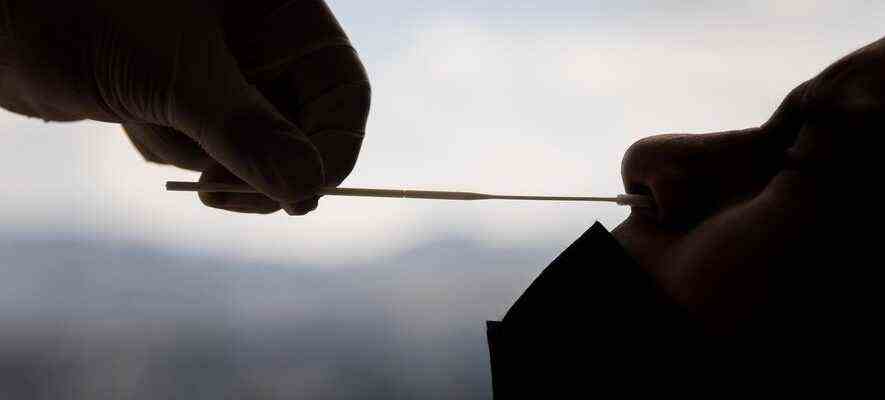Specific risks linked to the frequency of PCR and antigen tests to detect Covid have been highlighted by the Academy of Medicine, which reports pain and minor bleeding. Cases, extremely rare this time, of meningitis with leakage of cerebrospinal fluid, have also been documented.
Whether you are a contact case, traveler or non-vaccinated, you have necessarily gone through the nasopharyngeal test. A few months ago, the Academy of Medicine warned about the risks related to the frequency of these tests, whether antigenic or PCR. Since then, it has only increased, with 1.6 million nasopharyngeal samples last week. So, at a time of massive screening, what are the real dangers?
Among the elements noted by the Academy of Medicine, there are some “benign” complications, such as “pain or bleeding“. However, “serious complications are beginning to be described in the medical literature, including breaches of the anterior level of the base of the skull associated with a risk of meningitis“, notes the institution.
Serious risks remain the exception
In the scientific literature, such a case has been described by doctors in the JAMA medical journal. This is an American victim of a cerebrospinal fluid leak, the transparent biological fluid in which the brain bathes, which would have been caused by a Covid test.
However, the study states that the patient in question had intracranial hypertension and had developed encephalocele. The accident is therefore largely due to this overflow of the wall of the brain into the nasal cavities, which had formed a “pocket” of liquid.
It would be like punching a hole in the wall with a straw
A other study, spanish, this time reports a case of meningitis due to a cerebrospinal fluid leak. But for Dr Nicolas Boulanger, ENT doctor and cervico-facial surgeon, questioned by our colleagues from 20 minutesit is an “extremely rare” complication that he struggles to explain.
“In practice, this would be like piercing what is called the cribriform plate, which is a bone at the bottom of the nasal cavity, with a swab. It would be like making a hole in the wall with a straw, he illustrates. Rest assured, there is virtually no risk of having meningitis after a PCR or antigen test.
The importance of good handling
However, the ENT doctor specifies that “this gesture, repeated or poorly controlled, can actually cause pain and bleeding.” To deal with this risk, the Academy of Medicine recommends reserving the performance of these tests “for trained health professionals”, and strongly recommends that they train in ENT history before practicing.
In the same vein, the doctors who treated the American patient cited above call for “consider alternative methods to nasal screening” in some patients.
For example, those “with a known history of skull base deformities, a history of sinus or skull base surgery, or conditions predisposing to skull base erosion.”
Regarding children, the doctrine has not changed, the Academy of Medicine still recommends favoring saliva samples, for “their safety and” their acceptability “.

